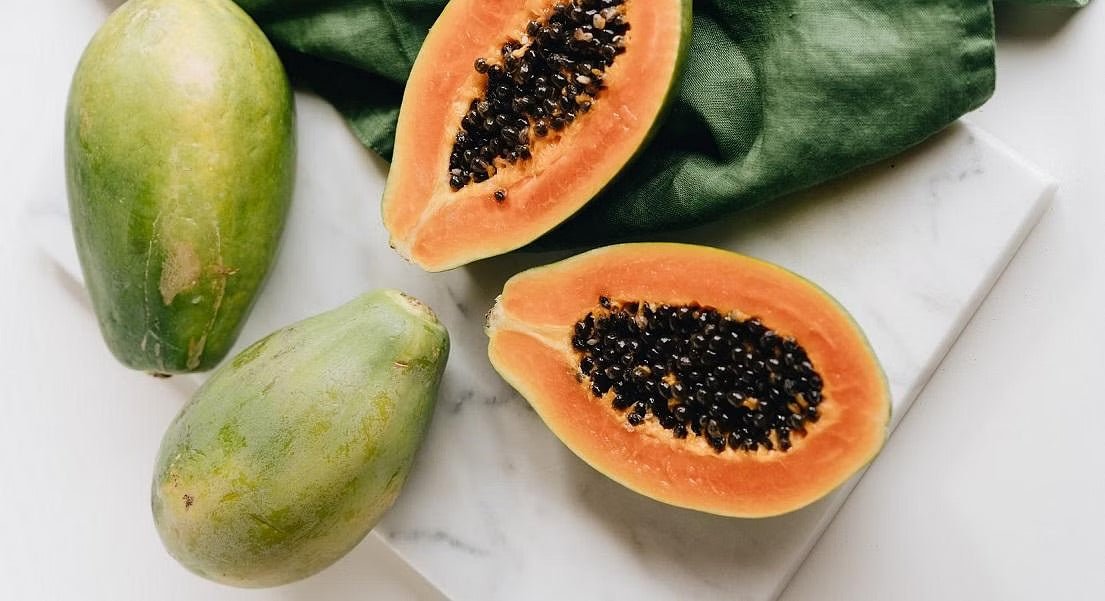It has long been understood that our microbiome has far reaching benefits outside of the gastrointestinal tract and an important part of it is to support our immune system.
There are various protective measures that we can take to improve our immune defences such as eating healthily, getting enough sleep and taking supplements such as vitamins D and C (find out more here) but supporting your gut is one of the most important.
Recently, there have been several studies looking at how our microbiome can protect us against viral, including COVID-19, infections too.
Immune defence begins in the gut
The digestive system is home to something called the Gut Associated Lymphoid Tissues or GALT and approximately 60% of the total immune system, and more than 80% of the immunoglobulin (Ig) producing cells, are located within the mucosa of the gastrointestinal tract.1 In fact, more immunoglobulins are made in the GI tract every day than in the rest of the body combined so it is worth looking after.2,3
The primary purpose of the GALT is to provide a first line of defence against foreign invaders, such as food antigens, pathogenic bacteria, or toxins. When an invader is ingested, the GALT can prevent infection, neutralise viruses, and remove antigens before they cross the mucosal barrier and enter the systemic circulation, leaving them to be excreted directly through the faeces.4,5 The secondary function of GALT is to begin the systemic (internal) immune response by alerting the rest of the body to the potential threat.
Damage to the gut = Damage to the immune system
This defence mechanism can be affected by a compromised mucosal lining. The mucosal lining can become damaged in the presence of an altered microbiome and altered intestinal permeability (leaky gut), which in turn can be caused by IBS, SIBO, food allergies, or localised gut infections such as parasites or candida, and this can reduce the effectiveness of this system and lead to an increase in infections reaching the internal immune system.6
Nourishing the Gut
A healthy, balanced gut bacterial environment can help to strengthen immune response, whereas alterations in bacterial balance may increase risk of infection. To achieve balanced gut health, functional medicine suggests a 5R approach of Remove, Replace, Re-innoculate, Repair and Retain. You can learn more about the 5R approach here .
Can probiotics help?
Working on your gut can be complex and take a while but if you want to get started straight away then consuming fibre from plant foods, taking fermented foods (such as kefir or kombucha) or using a probiotic may be helpful. Research has shown that certain probiotics can have a positive effect on our immune system.
COVID-19 – It is known that SARS-CoV-2 can cause gastrointestinal symptoms, such as vomiting, diarrhoea, or abdominal pain during the early phases. In return intestinal dysfunction induces changes in intestinal microbes, and an increase in inflammatory cytokines. SARS-CoV-2 can infect people of all ages, but older adults and people with pre-existing medical conditions appear to be more vulnerable to becoming seriously ill. There are many hypotheses as to why this occurs. Still, one of the factors could be the loss of microbial diversity associated with ageing and, with it, higher susceptibility to inflammation.7
To add to this, a study in November 2021 found that a simple probiotic blend could improve the symptom picture of patients with long Covid. It concluded that as patients with Covid with GI symptoms and other factors linked to gut dysbiosis have more severe and more persistent of symptoms that it would be wise to encourage lifestyle and nutritional factors, which improve the gut microbiome, including the use of the probiotic supplement used in the trial.8
Rhinovirus - A 2017 randomised, placebo-controlled study published in Beneficial Microbes was carried out to determine the effects of supplementation with Bifidobacterium lactis Bi-04 on innate and adaptive host responses to experimental rhinovirus challenge. The results suggest that ingestion of Bifidobacterium lactis Bi-04 can modify the inflammatory response to rhinovirus infection. There also appears to be an effect on rhinovirus replication manifest by decreased shedding of virus in the nasal secretions.9
Respiratory infections - A 2014 randomised, double-blind, placebo-controlled study was carried out on 465 healthy participants who exercise regularly. This particular group was selected because regular significant exercise is known to stress the immune system. Australian researchers compared the effects of supplementation with either a probiotic containing B. lactis Bi-04 alone (Group 1), a blend of L. acidophilus NCFM® & B. lactis Bi-07 (Group 2) or placebo (Group 3) over 5 months. Over the 5 month-study period, researchers found that Group 1 had a 27% lower incidence of upper respiratory infections and Group 2 had a decreased incidence of infections (although the beneficial effects were not as pronounced as Group 1). The researchers noted however that Group 2 in particular undertook considerably more physical activity than the placebo group which may have influenced the results. Overall, the results showed that probiotic supplementation, especially with B. lactis Bi-04, improved immunity compared to placebo.10
Colds and flu - To test the efficacy of probiotics for preventing colds and flu, and to identify possible synergy amongst probiotic strains, a total of 326 children aged between 3–5 years were randomly divided into 3 groups. Group 1 received placebo, group 2 were given L. acidophilus NCFM® and group 3 received a blend of L. acidophilus NCFM® & B. lactis Bi-07. Over a period of six months, results showed that probiotic supplementation significantly reduced incidence of fever, rhinorrhoea, cough incidence, duration & antibiotic prescription incidence and the number of missed school days attributable to illness. L. acidophilus NCFM® alone was effective, however, a broader protective effect was observed with the combination of L. acidophilus NCFM® and B. lactis Bi-07.11
Vaccine efficacy - In a 2008 randomised, placebo-controlled study published in FEMS Immunology & Medical Microbiology, researchers evaluated the immunomodulatory properties of a blend of probiotic strains on 83 healthy volunteers aged 18 – 62 years given an oral cholera vaccine. Included in the seven strains were B. lactis Bi-04, B. lactis Bi-07, Lactobacillus acidophilus NCFM® and Lactobacillus paracasei Lpc-37. Results showed that specific strains of probiotics may act as adjuvants to the humoral response following oral vaccination.12
Blog provided by Nutri Advanced.



